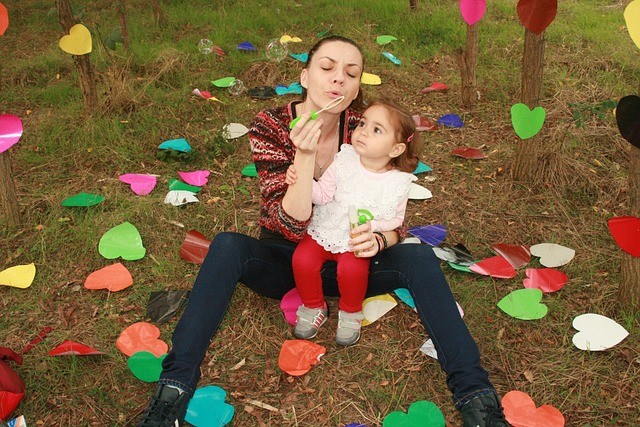Life often throws us curveballs and it’s up to us how we handle them. We can either allow those situations to break us, or we can bend a little, readjust, and make it through the other side.
While this type of situation isn’t easy for an adult, it’s far less challenging than it is for a child.
Children do not understand the world in the same way as an adult. Not yet. When bad things happen, or difficult emotions arise, they don’t see the bigger picture in the same way that you may. As such, it’s important to help develop your child’s sense of resilience to avoid these situations from breaking them.
It’s easy to think that childhood is an idyllic time, but it’s no protection against negative events and difficult emotions. Supporting your child through these times is one thing, but giving them the power to understand and accept their own autonomy is important. Resilience will help them to do that.
What is Resilience?
Resilience is a life skill that helps you to overcome difficult times in life and to face challenges head on, rather than running away or pretending they’re not happening.
Throughout their lives, children will face many situations, many good, many bad. However, when they’re small, they won’t understand the lesson or the reason for any of it happening. As a parent, it’s your job to help support them but also teach them that unfortunately, life isn’t all roses.
It’s a difficult job because in many ways, it breaks some of your child’s innocence. They see the world as beautiful and perfect, yet when they face their first difficulties, they see the world differently. It’s no longer perfect, it’s flawed.
As a parent, showing your child that the world is still beautiful despite the ups and downs is a vital part of the job. You can do that by helping them to help themselves; by building resilience.
Why is Resilience Important?
Resilience dictates how you handle change, whether you allow it to break you or not. It’s also about your attitude; are you positive or negative? Most children are pretty positive, but that can change when too many negative situations are thrown their way.
However, a resilient child is far more likely to understand the challenges that life may sometimes pose and avoid their mentality becoming wholly negative.
It’s thought that resilience is made up by five elements, which are mindfulness, self-care, positive relationships, purpose, and self-awareness. The tips we’re about to talk about all tap into those elements.
But why is resilient so important? It means you’re able to overcome life’s difficulties without them breaking your spirit. It allows you to learn from situations without assuming that everything is all wrong and nothing will ever be right again. It’s about your flexibility and ability to shift to accommodate different situations you need to face.
A child may not face the same ups and downs to quite the same degree as an adult, but building resilience can help them to face the problems that do come their way.
It may be having a big argument with a friend. It might seem like a small thing to you, but that’s their whole social world. Suddenly, they’re facing their first conflict in life, and they don’t know how to handle it. A resilient child will face it head on, and a child lacking in resilience will allow it to break their confidence and spirit.
It’s also a life skill that’s important to start in early life, so it grows as they become adults and face more challenges.
How to Help Your Child Build Resilience
So, now you know why resilience is so important, how can you start to help your child build resilience in their early years? Here are a few tips.
Encourage Your Child to Connect With Others
Children find it a lot easier to make friends than adults, so this is a great time to encourage them to make connections and build relationships. The more support a person has, the more resilient they will be to whatever life throws their way.
This is also a great way to help your child build their listening and empathy skills, which work hand in hand with building relationships, one of the key elements of resilience.
Encourage Your Child To Do Good Deeds
Helping your child see how good it feels when you help another person is one of the best ways to build empathy and resilience. Perhaps you could arrange for your child to do some volunteering work, in an age-appropriate setting, of course. Or you could accompany them to a place where they can understand that not everyone is as lucky in life as they are; perhaps join them in helping out in a soup kitchen or the homeless, as one example.
Helping your child to help others is a great starting point and will empower them to continue doing good deeds.
Keep a Regular Daily Routine
We all know that children need a routine for things like bath time, sleep, and meals, but it’s about more than predictability. It’s about helping them to feel safe and secure. If you deviate too much from their routine, you’ll no doubt notice that they start to have tantrums or seem anxious. This is a common reaction.
However, if you keep a regular routine, it’s a comfort to your child and also helps them to feel safe enough to explore their personality and boundaries in a healthy way.
You might think that spontaneity is a good thing but when it comes to childhood, it’s something to avoid. Chaotic routines simply cause a child to feel out of control and as such, they won’t handle challenges as positively as a child who has a comfortable and regular routine.
Talk to Your Child
Your child might be facing a challenge that you’re not aware of. For instance, they have fallen out with a friend, or they’re struggling in a subject at school and don’t want to admit it. Talking to your child and encouraging them to open up shows them that it’s okay to talk about their feelings and problems, and that it’s a healthy way to handle things.
Bottling up emotions isn’t a healthy way to deal with life’s challenges, so when you talk to your child and encourage them to open up, you avoid that type of habit becoming ingrained.
Encourage Your Child to Challenge Their Fears
As adults, we know that fear and anxiety are often illusions that we fixate on to the point of them seeming real. Even as adults, it doesn’t make those situations any easier to deal with. You can help your child to understand that their fears aren’t real by encouraging them to challenge them.
If your child is scared of something, ask them what they think the worst-case scenario is. Then, explore with them why that’s unlikely to happen, and even if it did, how they would cope.
Limit Your Child’s Online Time
You might think that limiting your child’s online time is a case of shielding them rather than helping them to build resilience, but it’s actually a positive action to take. The online world is full of negativity and there are many things your child shouldn’t be exposed too.
Social media is often a toxic environment in terms of comparisons and confidence. But your child might be reading the news and absorbing to much negativity that way.
Limiting your child’s online time and setting parental controls helps them to avoid unnecessary negativity and therefore helps them build a positive attitude.
Teach Your Child About Self-Care
It’s never too early to teach your child about the importance of self-care. They might not understand why they need to eat their greens, get enough sleep, and drink plenty of water at this point. It’s all unnecessary to them right now and it’s nothing short of boring!
However, teaching them why they need to do these things helps them to realise the importance of looking after their health and wellbeing.
So, rather than telling them to eat their greens because they have to, explain why. Similarly, explain why they need to go to bed at a specific time.
Help Your Child Set Goals
While you don’t want to encourage your child to set too many goals, or goals that are too rigid, some realistic goal setting can be a good thing because it helps them to face challenges and maintain the strength to keep going.
For instance, if your child is learning how to swim, you could set a goal together that they’ll swim their first length by such and such a date. Don’t make it too challenge at this point; but show them that by working towards goals, they’ll feel a huge sense of accomplishment and can push aside challenges.
Encourage Your Child to Celebrate Past Successes
When your child faces a difficult situation, it’s a good idea to remind them how they’ve faced challenges in the past and overcome them. For instance, if they’ve had an argument with their best friend, they may be devastated and assume that their friendship is over. But you can remind them how they had a little tiff a few years ago and everything was fine.
This helps your child to retain a positive attitude and not to assume the worst at all times.
Whenever they overcome a challenge, celebrate together and always remind them of their strength at that time.
Help Your Child to Accept Change
Change happens whether we want it to or not and it can be difficult to accept for a child. As a parent, talk to your child about how sometimes things need to change to bring fresh energy in, and that it’s not a bad thing. It might seem scary right now, but there’s always something to learn.
A child can see change as the end of an era, and they can grieve hard. Yet, by teaching your child that change happens and that it’s not a negative thing, they’ll face future changes with much more ease.
Resilience Builds Strong Kids
A resilient child is able to overcome whatever life throws at them. It won’t always be easy, just as challenges aren’t easy for you as an adult, but helping your child to be strong and adaptable as early as possible means they’re more likely to handle life’s ups and downs with greater ease.




